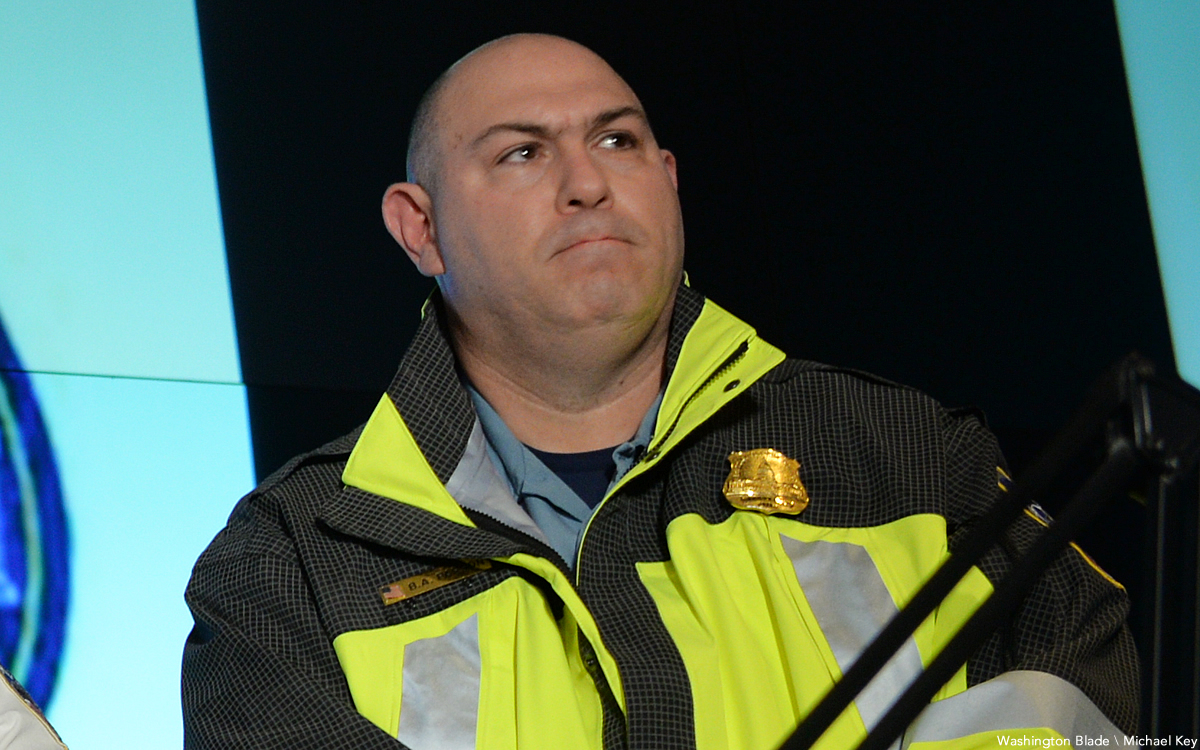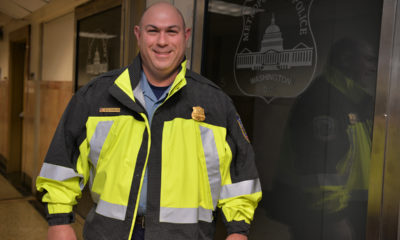Obituary
Norm Kent, co-founder of South Florida Gay News, dies at 73
Marijuana and LGBTQ rights champion, baseball fanatic, radio talk host passed away at home
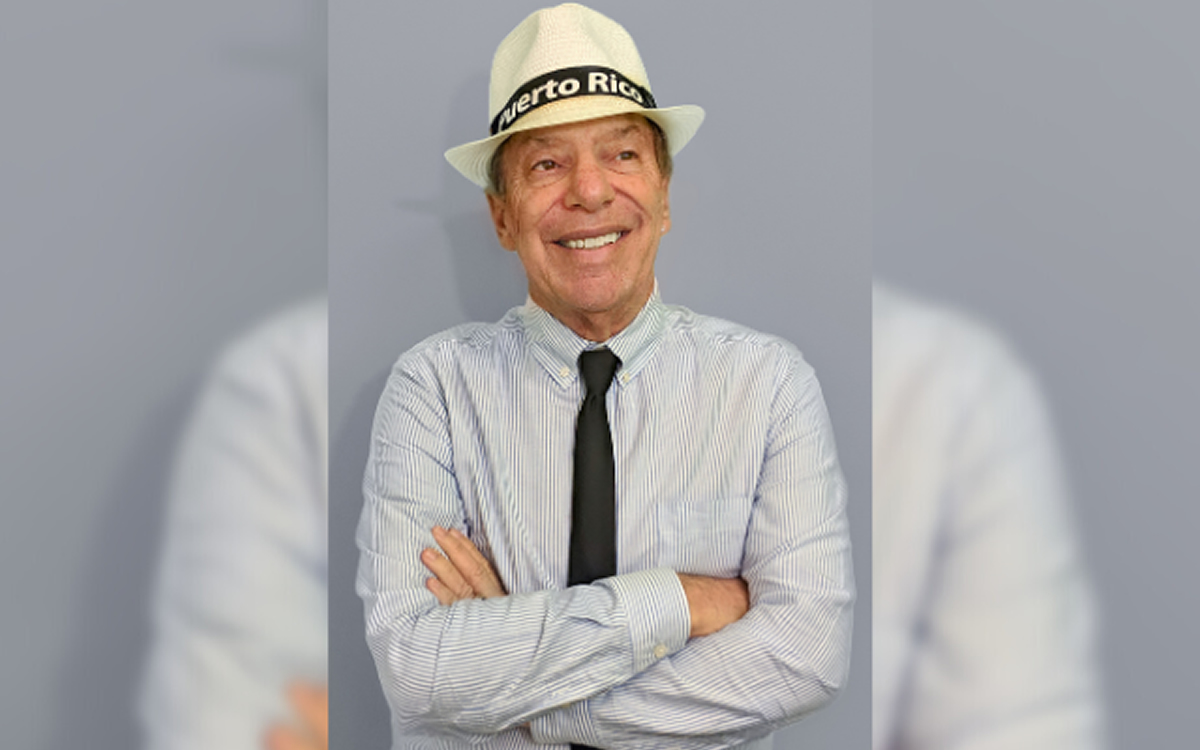
By Steve Rothaus for South Florida Gay News
Attorney Norm Kent — relentless fighter for marijuana and LGBT rights, baseball fanatic, popular radio talk host and co-founder of South Florida Gay News — died at 73 on April 13, 18 months after learning he had pancreatic cancer.
In his final interview on March 28, Kent told SFGN he was diagnosed in October 2021. “That day, I said, ‘Let’s fly to Atlanta and go to a Dodgers game. If they’re telling me I have cancer, we’re going to a baseball game.’”
“You definitely can’t accuse him of not being interesting,” said Fort Lauderdale attorney Russell Cormican, Kent’s law partner for nearly 25 years.
“The most important thing looking at Norm’s legacy is that he reminds us how important it is to stand up for what you believe in, no matter how unpopular it might be or what types of repercussions or blowback you might get from people, if you know what you’re doing is the right thing,” said Cormican, 51. “When he sees an injustice, he’s not afraid to lead the call against it. That’s the common thread that’s gone through his life.”
Born Norman Elliott Kent in Brooklyn, N.Y., on Oct. 18, 1949, his family soon moved to North Woodmere in Nassau County on Long Island.
“Ever since I was a little kid growing up in North Woodmere and taking Bus 53 to junior varsity games, I was a good, competitive baseball player. The doctor once said I had steel springs in my legs,” Kent said. “I just loved the game. I love it now because you don’t know what’s going to happen on the next pitch. It’s not scripted like a movie. Like comedians, you never know what the next joke is going to be.”
To never miss a game, Kent equipped his longtime small, two-bedroom Victoria Park home with 16 televisions.
“It looks like mission control,” Cormican said. “Heaven forbid there are four baseball games on. He has to see each one.”
Thirty years ago, he even owned a baseball card shop at the Gateway Shopping Center in Fort Lauderdale, Norm Kent’s Baseball Heaven.
Kent, who is survived by older brother Richard and younger brother Alan, once flirted with becoming a professional ballplayer but their dad Jesse told him, “You’re going to be the lawyer in the family.”
After graduating in 1971 from Hofstra University on Long Island with a bachelor’s degree in social sciences and sociology, Kent made his father happy and received a Hofstra law degree in 1975.
During college, Kent began establishing a national reputation as a leading proponent of legalizing marijuana use.
Kent joined NORML, the National Organization for the Reform of Marijuana Laws in 1971. He served 1992-94 on NORML’s national board, rejoined the governing body in 1998 and from 2013-14 served as national board chairman.
In 1988, Kent made headlines representing singer Elvy Musikka, a Hollywood woman nearly blinded by cataracts who was busted for growing pot in her own backyard.
“After 23 different operations for cataracts,” Kent recalled March 28, “she found the only thing that let her see was by taking marijuana. It had a certain THC in it which let her see.”
He continued: “Who was her government, or the president, to stop her from seeing? And when the police came to her house in Hollywood and said we’re going to have to arrest you for smoking pot, she said, ‘I dare you to. I don’t care. It’s my life. It’s my right to see.’
“She went to a lawyer. She went to me. And I said let’s go to court. We argued a case in [Broward Circuit Court] before Judge Mark E. Polen and we won. He said your right to smoke marijuana is a lot more important than the right of the government to tell you what to do with what you can smoke. That case became the seminal case for hundreds of others.”
While dying of cancer, Kent himself couldn’t find pain relief smoking marijuana: “No,” he said, “I had a respiratory condition in 2018 when I got a defibrillator and pacemaker.”
Shortly after college, Kent worked briefly as an urban affairs analyst for the New York Legislature, and in 1978 relocated to South Florida where his parents had moved.
Kent never officially told them he was gay.
“My parents always suspected he was gay from the time he moved to Fort Lauderdale,” said his brother Alan, a retired psychologist. “They would always ask me, ‘Do you think Norman is gay?’”
Alan Kent, who also is gay, came out to their parents in 1982. Five years later, after their father died, Norm called Alan from Provincetown, Mass., with some news: I’m gay.
“I said really? Tell me something I don’t know,” Alan Kent recalled.
Before he died, Norm Kent said that for him “there was no such thing as being in [the closet].”
“There was always this fear that as a gay lawyer it might cost me economically,” Kent said. “But there I was, a gay lawyer who was representing gay bars and gay friends and gay owners.”
Kent said that decades ago he never cared if people knew his sexual orientation. Once, a South Florida Sun Sentinel reporter interviewed Kent for a story and asked about rumors that he was gay — and then never published that he was.
“It’s not my job to do their thinking for them. It’s my job to be who I am. And I’m proud of every minute and moment of who I am and what I was,” Kent said. “And if that meant I was a faggot who could throw a baseball, that’s their problem.”
After he moved to South Florida, Norm Kent briefly wrote a column for Playbill magazine and taught sociology at Florida Atlantic University. Soon he became known locally as an advocate for runaway gay youths who hung out at Fort Lauderdale Beach.
On the strip, Kent interviewed 30 boys ages 12 to 20 working as prostitutes. By 1984, Kent had spoken with about 150 boys on the strip — a third of them said they had sold their bodies to survive.
For years, Fort Lauderdale police and politicians worked to downplay the local homeless problem, according to a 1989 Miami Herald profile of Kent headlined “Upholder of the Unpopular.”
“It was like the mayor in Amity denying that there was a shark out there,” Kent told the Herald, referring to the blockbuster 1975 film of the era, “Jaws.”
Kent spent the rest of his life advocating for homeless gay youth. In 2000 — after having just survived treatment for lymphoma — Kent met John Fugate, then 18 and disowned since middle school by his Lakeland family. Kent, who at the time published the Express Gay News in Fort Lauderdale, offered Fugate a job delivering newspapers.
“I was living under the bridge on Federal Highway just south of 26th Street,” Fugate said March 28, weeping, a few feet from Kent’s hospice bedside. “And Norman found out that I was sleeping on the street and he invites me to the Floridian Restaurant for dinner.”
That night, Kent told him: “I just want you to know if you ever need a place to stay, you can always stay at my house. Here are the keys.”
At first, Fugate said he was “too proud and scared” to come to Kent’s home. But a few weeks later, about 3 a.m. on a cold, rainy morning, Fugate showed up. Eventually, he moved in.
Despite their age difference, Kent, 53, and Fugate, 21, became partners. Seven years later, they ended their romantic relationship. But they remained close friends and continued to work together on and off. After Kent’s health began to decline in 2018, Fugate and his new husband Brian Swinford stepped in as Kent’s caregivers.
Fugate said Thursday that Kent died of a recently diagnosed lung cancer.
On April 10, Fugate posted on Facebook: “Sometimes you start to doubt your beliefs and wonder why it’s happening to good people and telling yourself why can’t the good people live in why does it have to be this way? I’m so lucky to have had Norm Kent in my life forever changed me to make me a better person, there’s no way on earth I could ever repay him or show him the love that I have for him other than being here for him now.”
Mark Possíen, Kent’s close friend since 1977, described his Victoria Park home as “a refuge for so many people.”
“If you were down and out, he would invite you to come and stay with him. He’d get you a job. If you were on drugs, he tried to get you off drugs,” Possíen said. “He was selfless. He did everything with no expectation of any kind or return or reward from the person.”
About 1991, Possíen moved into a spare room in the Victoria Park house where Kent helped him launch Catalog X, one of the first gay-owned mail-order adult toy businesses.
“I was Dildo Central!” Kent wrote in his final SFGN column published March 30.
By 1998, Possíen had opened two Catalog X retail stores, one in Fort Lauderdale, the other in South Beach. “It was a gay department store. We had everything we thought gay people would be interested in.”
Possíen, who closed Catalog X in 2003, now lives in Lake Worth. In late March, Kent told him that his “biggest disappointment” about having terminal cancer was not having enough time “to sue Ron DeSantis for the drag queen stuff.”
“He said, ‘I’ve taken on all these cases all my life, I didn’t make money on them and sometimes they cost me money,’” Possíen said. “When he saw something that was wrong or unjust, he wanted to fix it.”
During college on Long Island, Kent dabbled as a reporter writing for the local Jewish Journal and Nassau Herald.
Later in South Florida, Kent himself became a media celebrity.
“He’s lived his life in the public eye,” Kent’s brother Alan said. “Norman has done a lot of good stuff and he’s had a lot of recognition for what he accomplished.”
Norm Kent’s name frequently appeared in both the Sun Sentinel and the Miami Herald. Among his high-profile legal cases:
- Helping adult video store owners charged with obscenity in the 1980s.
- Representing the owners of nude dance clubs in the 1990s, when South Florida municipalities tried to shut them down.
- Defending countless men charged with public sex in restrooms, in parks and on beaches throughout South Florida well into the 2000s.
A 1992 case that got particular attention: When gay radio superstar Neil Rogers, Kent’s close friend, was charged with indecent exposure at an adult movie theater in South Beach.
“Millions” of other men were arrested under the same circumstances, Kent recalled March 28.
“Only straight men would go free. … And people like Neil would get into trouble. I said ‘What the hell is going on here? This isn’t right. This isn’t fair to gay people.’ Over the years, so many would be wrongfully and unjustly arrested and prosecuted.”
From 1989 to 1992, Kent had his own daily talk show on WFTL AM. Later, he hosted various radio programs including one broadcast live during the breakfast rush at the Floridian on Las Olas Boulevard.
He also represented Rogers in the radio business. “I wound up making him, as his agent, $1.5 million a year,” Kent said.
Kent said that for years, Rogers made fun of him on the radio and elsewhere, sometimes referring to him as “Norma.”
“Do you know that they gave me an award for donating money to the Broward General Cancer Society in 2000,” Kent recalled. “And they put my name up on a plaque. And one of the ladies who made the plaque, she really thought my name was Norma. She didn’t put ‘Norman Kent’ on the plaque. She put ‘Norma.’ I said, ‘Neil, you did that.’ We thought that was hilarious.”
In 1999, Kent took on a new title: Newspaper publisher. He launched the Express Gay News, which covered all aspects of queer life in South Florida.
Kent sold the paper four years later to Window Media, a national LGBT media group that renamed it the South Florida Blade. Window Media went bankrupt in November 2009 and quickly shut down the Blade. Most of the staff of the Blade reorganized and launched the Florida Agenda, which shut down in 2016.
In January of 2010 Kent launched a new newspaper and website called South Florida Gay News, along with a new business partner Piero Guidugli, who stayed with the company until 2020.
Celebrating 400 issues of SFGN in 2018, Kent and Guidugli highlighted a few of their most compelling stories, including:
- A five-year long program of entrapment by two West Palm Beach policemen who had entrapped more than 300 men.
- Hollywood police fired officer Mikey Verdugo in 2010 after the department learned he had appeared in a 15-minute gay porn scene 14 years earlier. (Verdugo now owns Bodytek Fitness in Davie and Wilton Manors.)
- The 2010 firing of licensed practical nurse Ray Fetcho AKA drag queen Tiny Tina, when it came out that 35 years earlier Fetcho had been charged with a lewd act for hosting a wet jockey shorts contest at the old Copa nightclub in Fort Lauderdale. (Fetcho died at 68 of cancer and diabetes in 2015.)
In 2016, Kent wrote in a publisher’s column about the last of the big gay bar raids in Broward County, when in 1991 then-Sheriff Nick Navarro created a media spectacle arresting men at the Copa and at Club 21 in Hallandale Beach.
“Sheriff Navarro orchestrated the raid as if he were hosting a Hollywood opening,” Kent wrote. “As the news report by Steve Rothaus indicates, the sheriff turned the raid into a media event, placing the entire LGBT community in a false light. Navarro arrived on the scene, believe it or not, in a helicopter, accompanied by his wife, dressed in an evening gown. Reporters were shocked by the crass celebration, amazingly accompanied by foreign Russian dignitaries to show off for.”
Kent said he never regretted publishing a story, even if it got him into hot water with local power figures, including activists and elected officials.
“It’s the newspaper. It’s what editorial cartoons are all about,” he said. “It’s not for the politician to be thin skinned. It’s for the politician to go naked before the canon and accept the fact that he, too, can be criticized no matter how good they think they are.”
The past five years, Kent suffered several life-threatening health setbacks. He had two brain surgeries to remove tumors, COVID in 2021 and then the pancreatic cancer diagnosis.
Last September, he stepped down as publisher and handed the running of SFGN to Associate Publisher Jason Parsley.
“Jason has established himself as a very powerful voice, not afraid to stand up to anybody,” Kent said March 28.
Parsley, 45, a one-time hair stylist who in 2007 got a journalism degree from Florida Atlantic University, has worked at SFGN since 2011.
These days, a local LGBT newspaper and website are more important than ever, Parsley said.
“Our stories, need to be told, must be told,” he said. “Unlike big corporate media, an LGBT paper is invested in the community.”
“You have a hostile legislature that wants to silence and erase our voices and stories. And because this isn’t taught in school, places like the gay media are where you are going to be informed and educated and learn about the queer community.”
Parsley said Kent “had a passion for journalism and being a storyteller.”
“He leaves a long legacy of journalism and a dogged pursuit of the truth,” Parsley said. “He wasn’t just a news reporter. He also wrote scathing and biting — truthful — editorials that would sometimes call out members of our own community and push the ball forward.”
Journalist Steve Rothaus covered LGBTQ issues for 22 years at the Miami Herald. @SteveRothaus on Twitter.
Norm Kent’s eloquence and outlook on life expressed in final column
Thirteen days before his passing, on March 30, South Florida Gay News published an opinion column written by Norm Kent entitled, “What is Hospice and What it Means to Me,” in which he movingly and eloquently described his outlook on life and his passion for journalism as noted by those who knew him.
“Last week, the doctors told me about a new and invasive cancer and tumor that would require even more sudden and maybe midnight trips to the ER and hospitals, ending the day with newer needles in my arms and weakening veins,” Kent wrote.
“Nope, no more,” he continued. “I think I have done my share for here and now. An activist for gay rights and your rights; for NORML and human rights. Your body. Your life. Your call. I hope I have made you proud.”
He reminisced about his life experiences and those dear to him along with loved ones who have been at his side during his illness before stating, “So folks, that all brings me to home health care hospice, like President Jimmy Carter has just done. It’s not to say goodbye, but to thank you for the many hellos. From the many memories; from your local hospitality establishments and homes and businesses.”
And in keeping with his philosophy on life, Kent concluded by saying, “Keep on doing what is right, remembering what is right is not always popular, and what is popular is not always right. You will always find a path belonging to you. Like Yogi Berra, New York Yankees Hall of Famer once said, ‘When you come to a fork in the road, take it.’ It’s your own. Forever.”
— Lou Chibbaro Jr.
District of Columbia
Acclaimed bisexual activist, author Loraine Hutchins dies at 77
Lifelong D.C.-area resident was LGBTQ rights advocate, sex educator
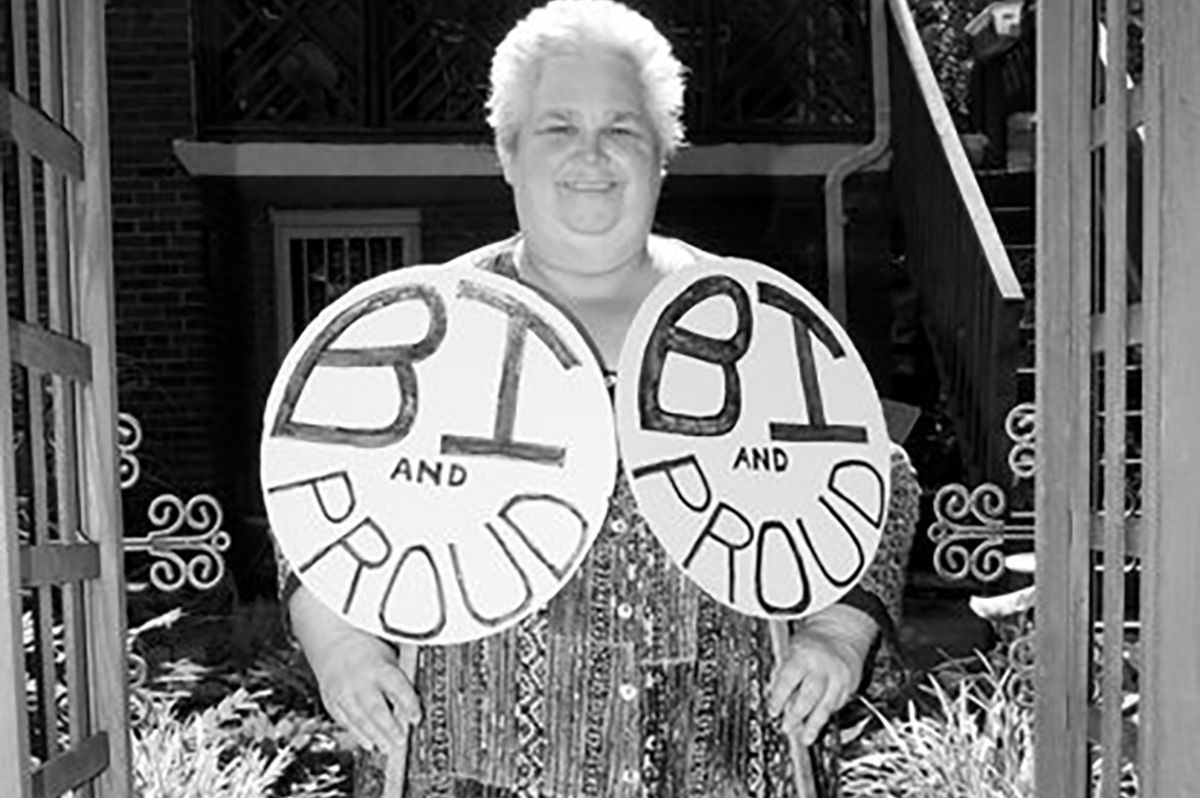
Loraine Adele Hutchins, a nationally known and acclaimed advocate for bisexual and LGBTQ rights, co-author and editor of a groundbreaking book on bisexuality, and who taught courses in sexuality, and women’s and LGBTQ studies at a community college in Maryland, died Nov. 19 from complications related to cancer. She was 77.
Hutchins, who told the Washington Blade in a 2023 interview that she self-identified as a bisexual woman, is credited with playing a lead role in advocating for the rights of bisexual people on a local, state, and national level as well as with LGBTQ organizations, many of which bi activists have said were ignoring the needs of the bi community up until recent years.
“Throughout her life, Loraine dedicated herself to working and speaking for those who might not be otherwise heard,” her sister, Rebecca Hutchins, said in a family write-up on Loraine Hutchins’s life and career.
Born in Washington, D.C., and raised in Takoma Park, Md., Rebecca Hutchins said her sister embraced their parents’ involvement in the U.S. civil rights movement.
“She was a child of the ‘60s and proudly recalls attending Martin Luther King’s ‘I Have a Dream’ speech with her mother on the D.C. Mall,” she says in her write-up. “She was steeped in the civil rights movement, was a member of the Student Non-Violent Coordinating Committee, and was proud to say she had an FBI record.”
The write-up says Hutchins received a bachelor’s degree from Shimer College in Mount Carroll, Ill. in 1970, and a Ph.D. in 2001 from Union Institute. It says she was also a graduate of the Institute for the Advanced Study of Human Sexuality’s Sexological Bodyworkers certification training program.
The family write-up says in the 1970s Hutchins became involved with efforts to assist tenants, including immigrant tenants, in affordable housing programs in D.C.’s Adams Morgan neighborhood.
“In 1991, she co-authored the groundbreaking book, ‘Bi Any Other Name: Bisexual People SPEAK OUT’ with friend and colleague Lani Ka’ahumanu,” the write-up says. It notes that the acclaimed book has been republished three times and in 2007 it was published in Taiwan in Mandarin.
According to the write-up, Hutchins delivered the keynote address in June 2006 at the Ninth International Conference on Bisexuality, Gender and Sexual Diversity. In October 2009, D.C.’s Rainbow History Project honored her as one of its Community Pioneers for her activist work.
“Loraine is one of the few people who has explained, defended and championed bisexuality and made sure the “B” got into the LGBT acronym,” the Rainbow History Project says on its website in a 2009 statement. “Sensitivity to bisexual issues, civil rights, and social justice issues is Loraine’s life work,” the statement concludes.
The write-up by her sister says that up until the time of her retirement, Hutchins taught women’s and LGBT studies as well as health issues in sexuality at Montgomery Community College and Towson University in Maryland.
“She was a friend and mentor to many in the LGBTQ community,” it says. “She thoroughly enjoyed adversarial banter on the many topics she held dear: sexuality, freedom of speech, civil rights, needs and support of those with disabilities, especially in the area of mobility, assisted housing, liberal politics and many other causes,” it points out.
She retired to the Friends House community in Sandy Springs, Md., where she continued her activism, the write-up concludes.
Hutchins was among several prominent bisexual activists interviewed by the Washington Blade at the time of her retirement in June 2023 for a story on the status of the bisexual rights movement. She noted that, among other things, in her role as co-founder the organizations BiNet USA and the Alliance of Multicultural Bisexuals, she joined her bi colleagues in prodding national LGBTQ advocacy organizations to improve their advocacy work for bisexuals, which Hutchins said had been inadequate in the past but had been improving in recent years.
Hutchins is survived by her sister, Rebecca Hutchins; her husband, Dave Lohman; nephew, Corey Lohman and his wife Teah Duvall Lohman; and cousins, the family write-up says.
It says a private memorial service was scheduled for December and a public memorial service recognizing her contributions to the LGBTQ community will be held in the spring of 2026.
Obituary
Acclaimed disability rights advocate Thomas Mangrum dies at 61
Lifelong D.C. resident also served as ‘cherished’ Capital Pride volunteer
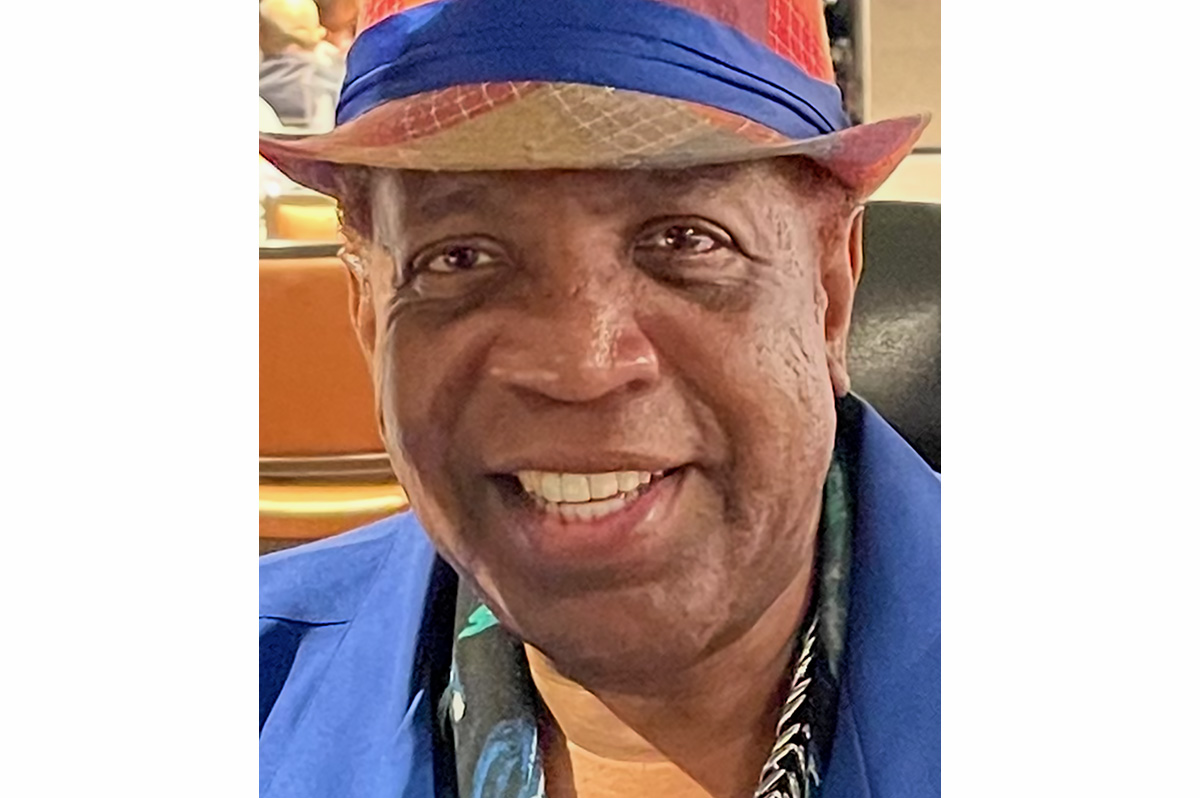
L. Thomas Magnum Jr., a lifelong D.C. resident, widely recognized and acclaimed advocate for people with disabilities, and LGBTQ rights activist involved in the city’s Capital Pride events, died Sept. 17 from complications related to stomach cancer. He was 61.
A statement released by Project ACTION!, a local disability advocacy organization for which Mangrum served for 15 years as co-president, says he worked for more than 20 years for the D.C.-based Maurice Electric Supply company before retiring in 2002 and devoting his efforts to disability-related projects and programs.
Phylis Holton, an official with the D.C. organization Quality Trust For Individuals With Disabilities and a longtime friend of Mangrum, said as a person with a developmental disability Mangrum devoted his life to supporting others with all forms of disabilities. She said that due to a separate spinal condition, Mangrum used a wheelchair for about 15 years prior to his passing.
Holton said Mangrum had a mild form of developmental disability, which the U.S. Centers for Disease Control and Prevention describes as “a group of conditions due to an impairment in physical, learning, language or behavior areas” that usually develops before a child is born during pregnancy.
Holton said Mangrum was an active member of Project ACTION! for 15 years prior to the 15 years he served as the organization’s co-president.
“He traveled nationally and presented at conferences, was featured on webinars and podcasts on a variety of topics related to self-advocacy, accessibility, equality, and more,” Holton told the Washington Blade in a statement.
“He shared his lived experience of being a Black man with a disability, and being gay, and how it impacted how he was treated in the community,” Holton said. “He was a strong advocate and co-facilitated trainings for independent advocacy organizations that Thomas supported and was a key advocate in their advocacy work,” she said.
Holton added, “He would answer a late request to train a group of attorneys, present at a meeting or testify before City Council or meet with an advocacy group to advance pending legislation that impacted people with disabilities.”
She said Mangrum also enjoyed participating in LGBTQ Pride events and last year traveled to the New York Pride events. According to Holton, he looked forward to participating in WorldPride 2025 events earlier this year in D.C. “but his illness prevented him from doing so.”
In a statement announcing Mangrum’s passing, Capital Pride Alliance, the group that organizes D.C.’s annual LGBTQ Pride events and served as the lead organizer of WorldPride 2025 in D.C., called Mangrum a “cherished volunteer” for D.C. Pride events.
June Crenshaw, the Capital Pride Alliance Deputy Director, said Mangrum served as a volunteer for D.C.’s LGBTQ Pride events “for many years” and was involved in many of the planning activities for WorldPride before his illness prevented him from participating in WorldPride earlier this year.
“He certainly in my interaction with him made me very aware of making sure that Capital Pride was thinking about accessibility always, and making sure that we had a welcoming, affirming accessible space for participants and staff with disabilities,” Crenshaw said.
In its statement on Mangrum’s career and accomplishments in life, Project ACTION! says he helped to advance the needs of people with disabilities through service on many boards and commissions. Among them were Lifeline Partnership, the D.C. Developmental Disabilities Council, the D.C. Center for Independent Living, the Washington Metropolitan Area Transportation Authority’s Accountability Advisory Committee, “and many more.”
“His leadership, passion, and unwavering commitment to equity and inclusion made a lasting impact on all who had the privilege to know and work alongside him,” the statement says.
It adds, “Thomas showed us the power of perseverance, courage, and the importance of standing together. His spirit will continue to guide us and strengthen our community for generations to come.”
A funeral for Mangrum was scheduled for Oct. 9, at D.C.’s Westminster Presbyterian Church at 400 I Street, S.W., with a viewing at 10 a.m. followed by a program at 11 a.m. A burial was scheduled to take place that same day at Heritage Memorial Cemetery at 13472 Poplar Hill Road in Waldorf, Md.
Holton said in lieu of flowers, donations may be made to Project ACTION! for a Celebration of Life and advocacy scholarship in Mangrum’s name. A date and location for the Celebration of Life for Mangrum was to be announced later, according to Project ACTION!
Obituary
Susan Xenarios, crime victim advocate, long-time LGBTQ ally, dies at 79
‘Susan was a force of nature, a mentor’
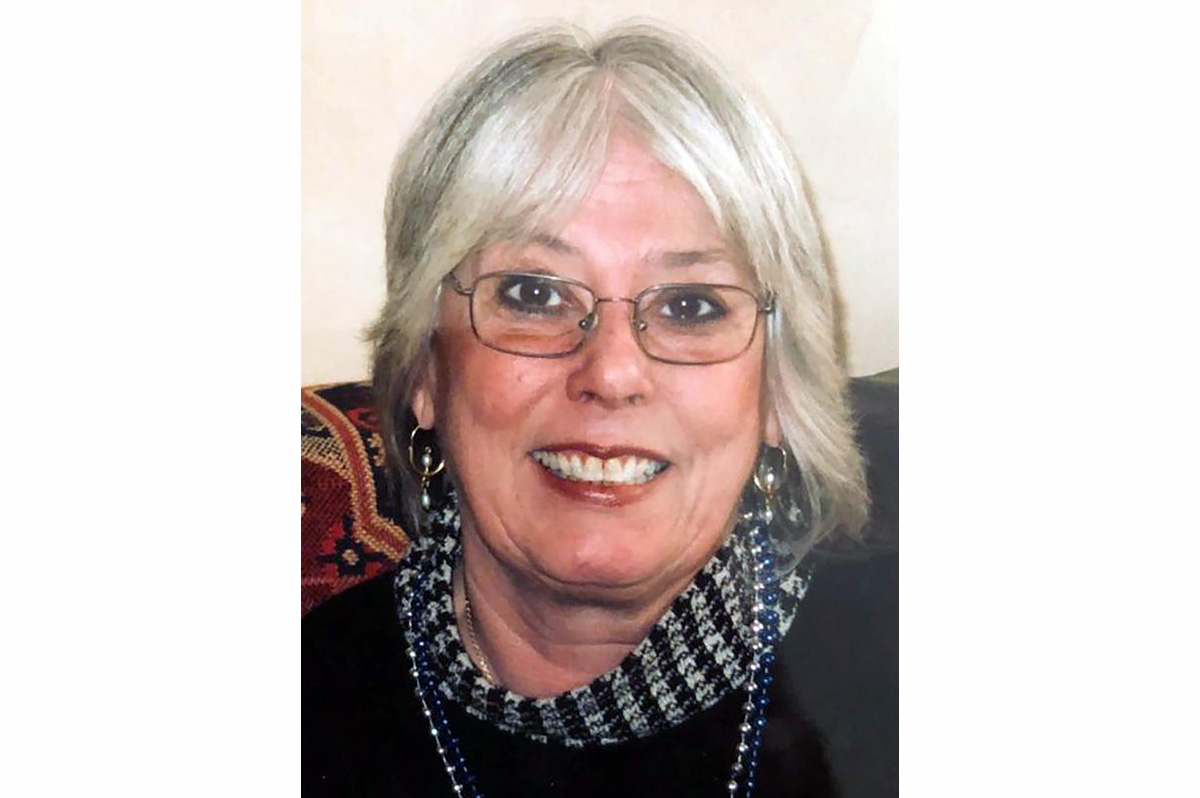
Susan Xenarios, LCSW, a visionary and dynamic leader of New York’s crime victim movement for 50 years and a courageous ally of the LGBTQ community, died on Sept. 6 in Manhattan. She was 79.
In 1974, an assailant held a knife to Ms. Xenarios’s throat and raped her on a rooftop in Upper Manhattan. At a time when few sexual assault victims spoke out, she began a lifelong, public campaign to improve the care and treatment of survivors and to reform laws and police procedures. Along with her high-profile advocacy, she never stopped counseling individual survivors of crime, pioneering breakthrough therapeutic interventions.
Ms. Xenarios led the creation of New York’s first program to provide assistance to survivors of sexual assault, the state’s first clinical program for male survivors, and the New York Sexual Assault Forensic Examiner (SAFE) Program, which ensures survivor-centered emergency room protocols, including evidence collection. She served as executive director of the Crime Victims Treatment Center in New York City for 40 years (1977 -2017).
Ms. Xenarios also was a driving force behind several state laws to advance the rights of crime survivors, including a 1993 law protecting the confidentiality of rape crisis center communications, the Hate Crimes Act 2000, which included enhanced penalties for hate-motivated crimes, including anti-LGBTQ assaults, and the 2015 “Enough is Enough” law, one of the first laws in the nation to require all colleges to adopt a set of comprehensive procedures for addressing sexual violence on campuses.
“Susan was a force of nature, a mentor, an extraordinary ally to the LGBT community, and a dear friend,” said Bea Hanson, director of the New York State Office of Victim Services, principal deputy director of the federal Office on Violence Against Women during President Barack Obama’s administration (2011-2017), and director of client services of the New York City Gay and Lesbian Anti-Violence Project (1991-1997). “She was a leader in advocating for the rights of sexual assault survivors and all crime victims. She spoke truth to power with a smile on her face and love in her heart. She will be missed.”
“Susan was the greatest champion and friend of LGBT victims of crime there ever was or ever will be,” said Matt Foreman, former executive director of the NYC Gay and Lesbian Anti-Violence Project (1990-1996) and the Empire State Pride Agenda (1996-2003). “She was one of the first to recognize the prevalence of sexual assault against men and she created the first program to help male survivors. When there was enormous pressure to pass a hate crimes law that did not include anti-LGBT offenses, she made sure the larger movement did not abandon us. She understood the harmful effects of having terms like ‘sodomy’ and ‘deviate sexual intercourse’ in New York State law and led the successful drive to purge them from the books. She was so genuinely warm and supportive, I was shocked when I learned that she wasn’t a lesbian.”
A memorial service will be held on Saturday, Sept. 20, at 11 a.m. at West End Collegiate Church, 245 W. 77th St. in Manhattan.

